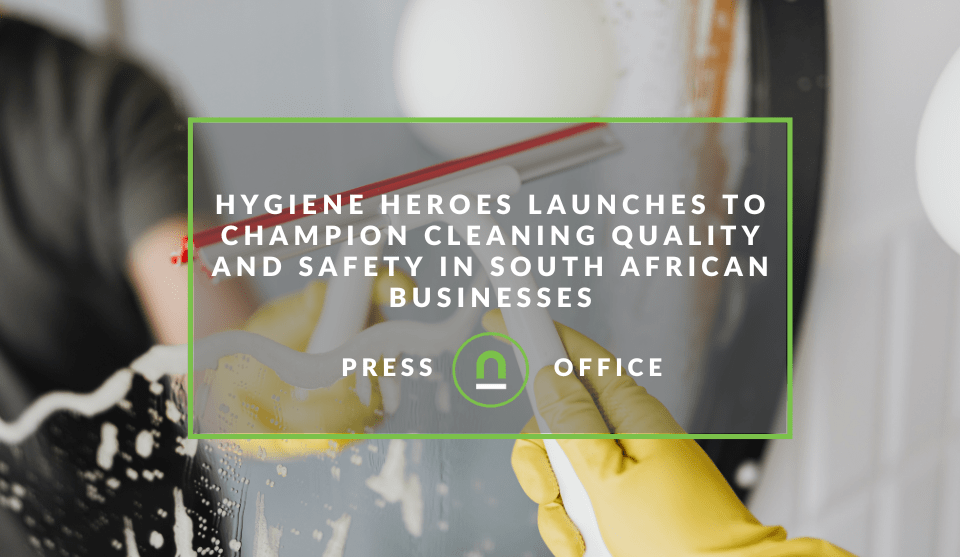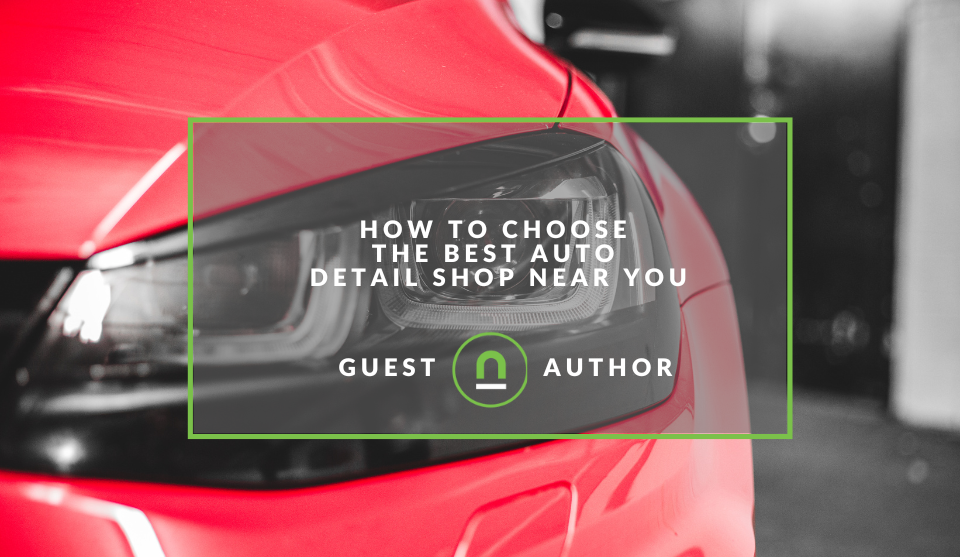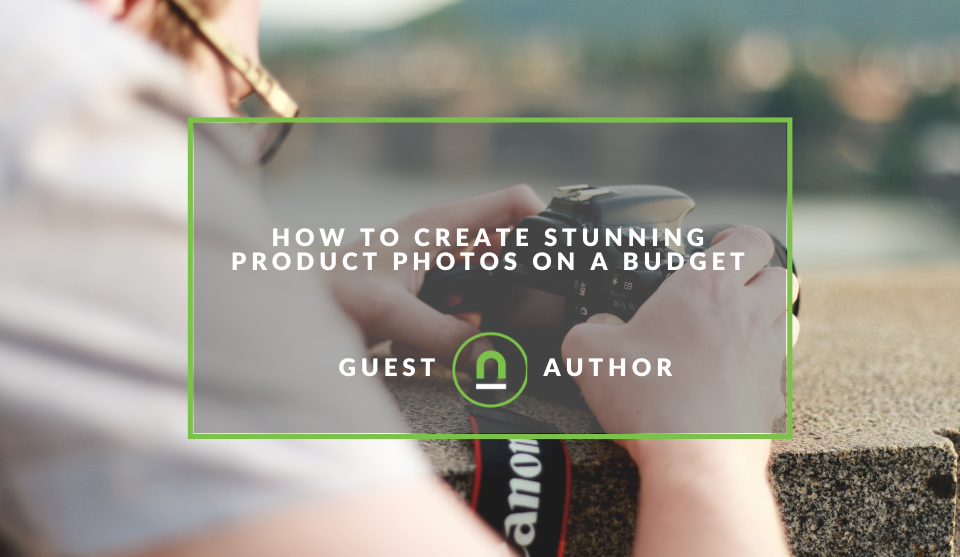Recent posts

nichemarket Advice
19 FREE Business Directories In Mexico
27 September 2025

Press Releases
Hygiene Heroes Launches to Champion Cleaning Quality and Safety in South African Businesses
25 September 2025

Petrol heads
How to Choose the Best Auto Detail Shop Near You
11 September 2025

Money Talks
Exploring The World Of Online Trading In South Africa
10 September 2025
Popular posts
Extravaganza
Trending Music Hashtags To Get Your Posts Noticed
24 August 2018
Geek Chic
How To Fix iPhone/iPad Only Charging In Certain Positions
05 July 2020
Extravaganza
Trending Wedding Hashtags To Get Your Posts Noticed
18 September 2018
Money Talks
How To Find Coupons & Vouchers Online In South Africa
28 March 2019
How To Create Stunning Product Photos On A Budget
30 March 2023 | 0 comments | Posted by Jill Goodwin in Industry Experts
If a picture speaks a thousand words, a beautiful product image speaks a thousand website clicks. That's why product photography is extremely important on your eCommerce site. These photographs are your brand's visual identity, and they are a determining factor in your success.
Yet, taking pictures of products requires more than just pointing and shooting. Even for the most simple products, you need stunning photographs that attract customers and funnel them through to the checkout page. To do this, you need to use the right tools, lighting, and environment.
Have you decided to start creating a custom catalogue? Are you starting an online store? Or are you searching for low-cost, easy methods to take high-quality product photos? You've come to the right place.
Fortunately, you don't need to spend a fortune to give your eCommerce store a reputable appearance and increase customer turnover. All you need to do is use this guide to learn how to shoot high-quality product photos on a tight budget.
Choose the right camera.
For both the customers and the ranking of your website, the quality of your product photos is crucial. If you're on a tight budget and you're thinking of using a smartphone, this is an option, as many smartphones are equipped with great-quality cameras.
If your shots are for online-only purposes and you're not shooting for billboards or glossy magazines, then your smartphone is affordable, simpler, and more practical. Plus, the picture quality is decent.
However, when it comes to capturing the finest details, even a good smartphone camera cannot compete with a professional camera with a high-quality lens. A good camera can be used for a variety of photoshoots, and the various interchangeable lenses are ideal for photographing a variety of different products.
Select an appropriate lens.
For close-up, high-resolution product photography, it's essential that you capture a sharp, clear picture with the proper aspect ratio.
If you have the opportunity to acquire a lens, then we suggest that you avoid wide-angle lenses if you want to shoot product shots without any distortions to size or figure. Zoom lenses make taking photos with them more convenient. We recommend using a standard 50mm lens because it's easily adjustable to the type of product photography you want to achieve.
Acquire a tripod.
If you're on a tight budget, investing in a tripod is essential, even if it's the cheapest option you can find. Even a simple tripod is hugely effective in significantly improving the clarity and quality of your product photographs.
A tripod will stop your hands from shaking and give your camera greater stability. While learning how to take excellent product shots, it's also crucial because it will remove some of the blur. Additionally, if you want to take 360-degree photographs that retain a sense of consistency for your brand, a tripod is an unquestionable necessity, as it's physically impossible without one.
Decide on a backdrop and lighting.
To capture pictures of your product clearly, you should shoot against a crisp, clear and clean background. Not only does this reduce the need to crop images or remove backgrounds when editing, but it also ensures you get the best shots with no external interference.
We recommend using white or lighter colours for your background as it makes the products look cleaner. Consider mounting the background to the wall and then setting up the lighting, or, you could make use of a lightbox to simplify your process.
It's entirely up to you whether you decide to create a DIY lightbox or buy one that's already constructed. However, premade lightboxes have a built-in lighting system, velcro fasteners, and alternative backdrops, which makes it easier for you to get started.
It's always a good idea to consider the average size of your products when deciding on your lightbox specifications. For example, if you won't be photographing enormous items, a 20x20 box should be perfectly fine.
Master your camera settings.
If you decide to invest in a camera, we highly recommend watching a couple of videos to get familiar with the settings. Learn how to utilise the appropriate camera settings for your product photography, as incorrect settings could result in grainy, overexposed, or underexposed images that'll need further post-production processing.
We recommend the following settings as a starting point:
- ISO: 100-120
- Aperture: F/5.6 to F/11
- Shutter Speed: 1/20 or lower
- White balance: Auto
If you opt to use a smartphone to take your product photographs, you should familiarise yourself with the settings too. Also bear in mind that the digital zoom, built-in flash, and filters will all degrade your image quality and are best avoided.
Start taking photos.
If you don't know how to place your product within a frame correctly at first, you can run into a few issues. Try out different concepts, look for reference images and other product photography portfolios online, and try to recreate them. Just remember to use them as inspiration rather than a direct copy.
Take as many pictures as you can from various perspectives, as this will help you select the best photo afterwards. Having multiple product angles has also proven to increase your sales as it provides customers with a full view of their potential purchase. As a rule, if you're shooting for online use, the more angles, the better.
Refine your post-production process.
Taking your product photographs is only half the job done. Once you have your images, you need to select the best ones and edit them. You're going to want to remove the background, remove blemishes or distractions, and ensure the images are clear and showcase their true colours.
If you're on a tight budget, you can research free photo editor options and try out a few until you find the one that suits you best. You can also watch informative videos or webinars on the basics of image editing.
Final thoughts
When it comes to product photography, you don't need to spend copious amounts of money on the best camera or lightbox on the market. You can use budget-friendly equipment options, and they will work just as well. In time, you can upgrade your equipment, but that's entirely up to you.
Take these tips into consideration when starting your product photography journey, and you'll boost your eCommerce sales with every well-taken image.
Tell us your story
Would you like to write for nichemarket just like Jill has? Find out how to submit a guest post, and when you're ready, you can contact us.
Are you looking to promote your business?
Photography freelancers can create your free business listing on nichemarket. The more information you provide about your business, the easier it will be for your customers to find you online.
Registering with nichemarket is easy; all you will need to do is head over to our sign-up form and follow the instructions. If you require a more detailed guide on how to create your profile or your listing, then we highly recommend you check out the following articles.
Recommended reading
If you enjoyed this post and have time to spare, why not check out these related posts and dive deeper down the rabbit hole that is photography career advice.
- Top hashtags for Models & Model Photography
- How To Earn Cryptocurrency With Your Photographs
- 36 Free Stock Photo Sites
- How To Find Local Freelance Work In South Africa
- How to Become a Freelancer and Where to Find the Best Freelance Jobs
- How To Earn Cryptocurrency For Freelance Work & Micro Jobs
Tags: Photography, Guest Post
You might also like
Using Academic Help To Learn New Skills
26 August 2025
Posted by Derek Adams in Academia
Transform your assignments into skill-building opportunities. Discover the "Assignment in Need" method and learn how to use academic help effectively...
Read moreHygiene Heroes Launches to Champion Cleaning Quality and Safety in South African Businesses
25 September 2025
Posted by Shamima Ahmed in Press Releases
Hygiene Heroes’ launch in South Africa - a fresh initiative promoting better hygiene, awareness and healthier living in local communities.
Read more{{comment.sUserName}}
{{comment.iDayLastEdit}} day ago
{{comment.iDayLastEdit}} days ago
 {{blogcategory.sCategoryName}}
{{blogcategory.sCategoryName}}

